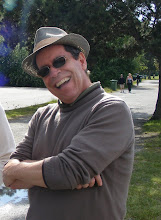Author David Pietrusza describes the 1960 campaign as "The Epic Campaign That Forged Three Presidencies", JFK, LBJ, and Nixon. Considering the continuation of the Nixon presidency under Gerald Ford, the 1960 campaign would influence the next 16 years of presidential leadership.
This is indeed a pivotal time in American politics. A new era of leadership is emerging and a new generation is stepping up. Nixon and Kennedy are both younger and have recruited older, seasoned running mates to bolster the appearance of experience on their respective tickets. The choices made by these three men, JFK, LBJ, and Nixon, in the course of their presidencies would determine the course of the nuclear arms build-up, the cold war, the Vietnam war, the civil rights movement, the space race, and a score of other issues which would define both the 60's and the 70's.
Rebuilding the Republican Right
This would also signal a time of rebuilding the "Republican Right", as alluded to in Barry Goldwater's 1960 convention speech... "...let's grow up conservative's. Let's, if we want to take this party back someday, and I think we can, let's get to work!" Goldwater would be back as the Republican Presidential nominee in 1964, but it would not be until the election of Ronald Reagan in 1980 that the Republican Right would finally find their muscle. They have been flexing it ever since.
Lodge-Kennedy Dynamics
Another significant element of this campaign is the nomination of Henry Cabot Lodge Jr. as the Republican Vice Presidential nominee. The Lodge's were long-time Kennedy rivals from Massachusetts, with Henry Cabot Lodge Jr. narrowly losing his senate seat to JFK in 1952. Lodge's son George would lose a bid for the same seat, vacated by JFK when he was elected President, to Ted Kennedy in 1962. (I still have a Kennedy '62 tie-clip to commemorate that Senate race!) Despite the historic rivalry, Kennedy would appoint Henry Cabot Lodge Jr. as his ambassador to Vietnam at a crucial moment in the history of US involvement there. One wonders if the two weren't working at cross purposes then, but that is another story.
Remembering and Reflecting... Rob; in Vancouver
"Few presidential elections have been quite as close,
as dramatic or as controversial as the 1960 election
between Richard Nixon and John F. Kennedy turned out to be."
Isaac McPhee



























